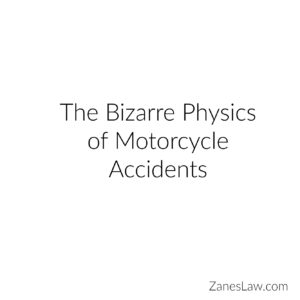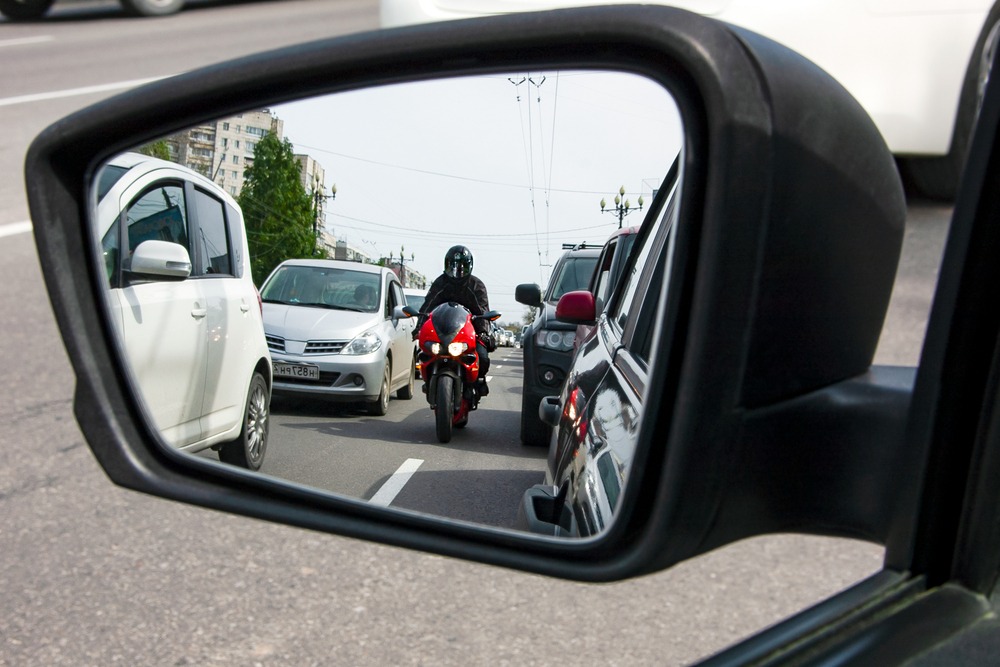![]() Contact Us (866) 499-8989
Contact Us (866) 499-8989
Who Is At Fault in Most Motorcycle Accidents?
- How Many Motorcycle Accidents Occur Annually?
- What Is the Main Cause of Most Motorcycle Crashes?
- Who Is Responsible for Paying for Losses in a Motorcycle Accident?
- How Is Accident Fault Determined?
- How does Sharing Fault Impact An Injury Settlement?
- Can My Lawyer Tell Me Instantly Who Is At Fault for My Motorcycle Accident?
- Home
- FAQs
- Motorcycle Accidents
- Who Is At Fault in Most Motorcycle Accidents?
Motorcycle accident liability determination is a difficult process that calls for meticulous attention to detail and knowledge of accident reconstruction. Although it is typically considered that the motorcycle’s driver is at fault, there are instances where multiple parties are to blame. Shared fault can greatly impact settlement eligibility depending on the state it occurred.
Negligence and proof of fault must be evident to qualify for a personal injury compensation package. There are common causes that make proving culpability easier, but a thorough investigation will be performed to ultimately assign fault to the responsible party.
Let’s explore how the Phoenix motorcycle accident lawyers at Zanes Law fight the insurance companies by determining who is at fault in motorcycle accidents and what both drivers and those riding a motorcycle can do to prevent future accidents.
How Many Motorcycle Accidents Occur Annually?
Each year, motorcycle accidents cost a whopping $12 million in healthcare bills, according to the Centers for Disease Control and Prevention (CDC). This correlates with the 84,000 non-fatal motorcycle injuries that were recorded by the National Highway Traffic Safety Administration (NHTSA).
Since motorcycle accidents are 29 times more likely to end in fatalities than car crashes, it is imperative that drivers and their passengers protect themselves by wearing a helmet and other adequate protective gear while operating a motorcycle.
For a free legal consultation, call (866) 499-8989
What Is the Main Cause of Most Motorcycle Crashes?
Most motorcycle accidents occur due to the negligence of another motorist who fails to yield to the driver’s right-of-way, according to the National Highway Traffic Safety Administration (NHTSA). Supplemental leading causes of motorcycle wrecks continue to be distracted driving, driving under the influence, and speeding.
While these statistics highlight the root cause of motorcycle accidents, drivers and motorcycle riders need to be aware of one another and take bigger strides in reducing accidents. Each driver has an obligatory duty of care while operating their vehicle, which will be considered if an injury claim is filed.
Who Is Responsible for Paying for Losses in a Motorcycle Accident?
Depending on who caused the motorcycle accident, whoever was at fault must pay damages. You may be entitled to damages from the other motorist or their insurance provider if their carelessness or malfeasance contributed to the collision. This compensation may include expenses for pain and suffering, lost wages, medical bills, and property damage.
Other parties, such as the maker of a defective motorcycle component or the government entity in charge of maintaining a hazardous road condition, may, in some situations, also be to blame for the collision. While there is no evidence to show who causes more motorcycle wrecks, a motorcycle accident expert can assist in identifying potential parties at fault in a motorcycle crash.
Click to contact our personal injury lawyers today
How Is Accident Fault Determined?
Examining the circumstances and available evidence helps assign blame for the accident. Generally, the concept of negligence—the failure to use reasonable care in a given circumstance—is used to determine responsibility.
The following elements could be taken into account while determining fault:
- Reports from the police and testimonies from witnesses: If the police are summoned to the accident scene, they will investigate and compile a report. It may also be possible to get witness statements to aid in solving the mystery.
- Physical evidence: Skid marks, car damage, and other physical evidence that can be used to determine what happened may be inspected at the accident scene.
- State traffic laws: In order to ascertain whether any infractions took place, state traffic regulations will be reviewed.
- Driver behavior: The conduct of the involved drivers, such as speeding, failing to signal, or distracted driving, will be taken into consideration.
To truly understand what transpired before and during the collision and who was to blame, an expert’s opinion may be sought. For instance, a specialist in accident reconstruction could shed light on what caused the accident.
Complete a Free Case Evaluation form now
How does Sharing Fault Impact An Injury Settlement?
Sharing blame can have a big effect on how much money a plaintiff can get after a motorcycle crash. Working with a personal injury lawyer with experience can help you navigate the legal system and fight for the compensation you are entitled to if you have been hurt and may be partially at fault.
These legal doctrines are utilized in various jurisdictions when it comes to allocating blame in a motorcycle collision:
Comparative Negligence
The amount of compensation a plaintiff can collect in jurisdictions that use comparative negligence is decreased by the degree of fault they are given for the accident. For instance, if a plaintiff receives a $100,000 award but contributed 20% to the motorcycle accident, their compensation would be reduced by 20% to $80,000.
Pure Comparative Negligence
If the plaintiff is deemed to be more at fault for the motorcycle wreck than the defendant, they may still be entitled to damages in a pure comparative negligence state.
Modified Comparative Negligence
If a plaintiff is determined to be 50% or more at fault for the accident, they are deemed ineligible for damages under modified comparative negligence laws.
Contributory Negligence
If a plaintiff is judged to be even 1% to blame for the accident, they are ineligible to receive any compensation in jurisdictions that follow contributory negligence. One state that upholds the principle of contributory negligence is Virginia.
Can My Lawyer Tell Me Instantly Who Is At Fault for My Motorcycle Accident?
A lawyer typically won’t be able to tell you who was most at fault for your motorcycle accident right away without first performing a comprehensive investigation and evaluating all of the relevant information.
A thorough examination of the circumstances surrounding the collision, including witness accounts, police reports, and any accessible video or photographs, is necessary to determine fault in a motorcycle accident.
Based on the initial facts you provide, your motorcycle accident attorney might be able to give you a basic notion of who might be at fault, but it’s crucial to keep in mind that this is simply a first impression.
Call or text (866) 499-8989 or complete a
Free Case Evaluation form
 The Bizarre Physics of Motorcycle Accidents
The Bizarre Physics of Motorcycle Accidents
The Bizarre Physics of Motorcycle Accidents Riding a motorcycle on today's highways, you have to ride in a very defensive manner, and it's helpful to understand the physics of motorcycle accidents.
 Zanes Settles a Motorcycle Accident for Over $400,000
Zanes Settles a Motorcycle Accident for Over $400,000
The legal team at Zanes Law is thrilled to announce its latest big win. In early February, we settled for $410,000 after our client’s motorcycle rear-ended another vehicle. The settlement
 5 Tips for Safely Riding Your Motorcycle this Summer
5 Tips for Safely Riding Your Motorcycle this Summer
Nothing is better than hopping on your motorcycle and going for a ride on a nice summer day. But before you turn on the engine, it’s important to be sure that you understand how to stay safe. Here
 How Negligence Is Established in a Motorcycle Accident
How Negligence Is Established in a Motorcycle Accident
After a motorcycle accident, both victims need to pay for their injuries and property damage, but who pays whom? In at-fault states like Arizona, the person who is more negligent pays. The law states
Receive a Free, No-Obligation, Case Evaluation Now



